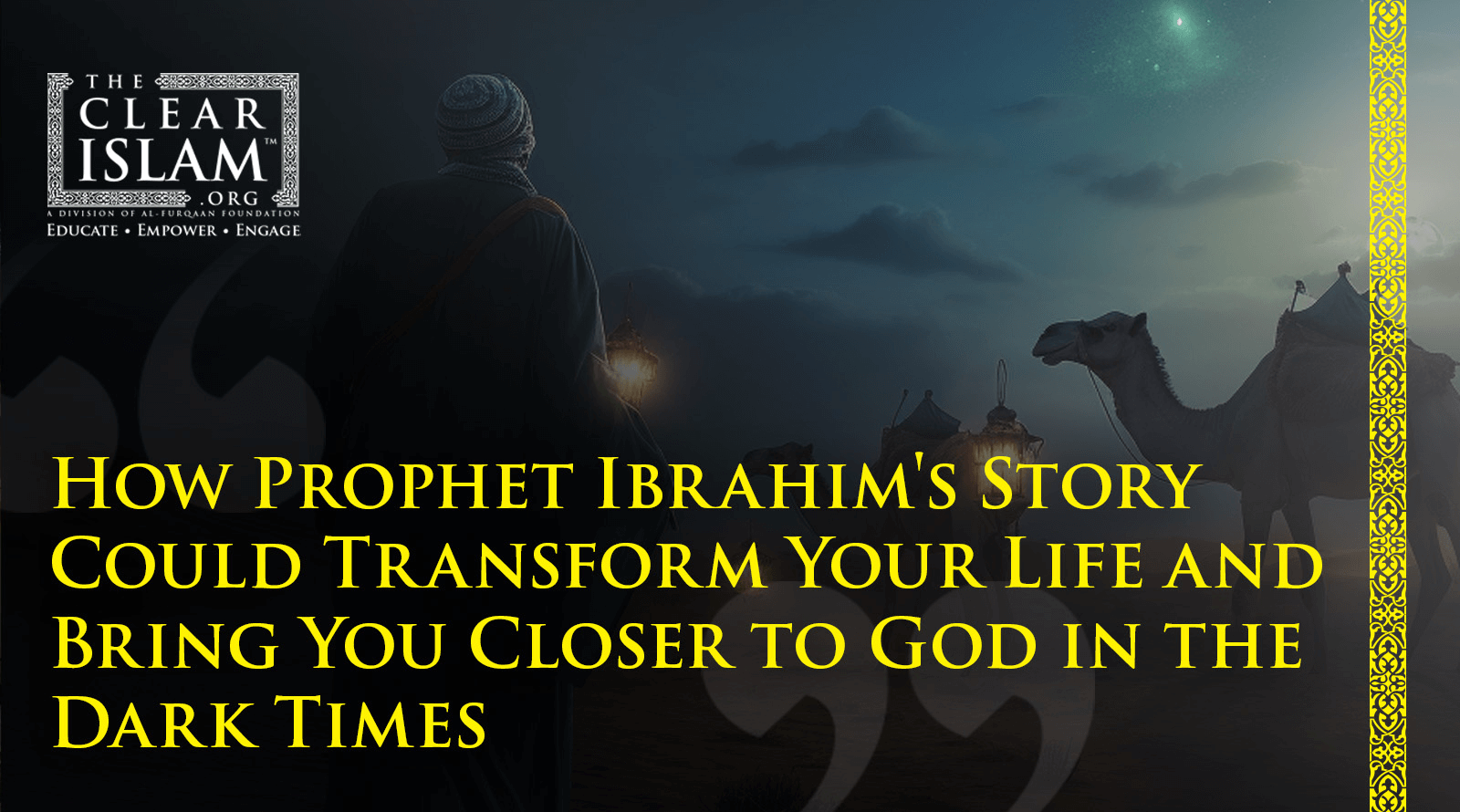Prophet Ibrahim, known as Abraham in the Judeo-Christian tradition, holds an important and central place in Islam. Revered as one of the greatest prophets, Prophet Ibrahim’s life story is one of unwavering faith, immense trials, and ultimate devotion to the one true God. This article aims to provide non-Muslims with an insightful look into the life of Prophet Ibrahim as depicted in Islamic tradition, highlighting his significance and the universal values his story teaches us.
Ibrahim’s Early Life and Call to Prophethood
Prophet Ibrahim was born in the ancient city of Ur, located in present-day Iraq, into a family deeply entrenched in idol worship. From a young age, Prophet Ibrahim was troubled by the polytheistic practices of his people and sought the truth about the universe’s Creator. His quest for truth led him to the understanding and firm belief in monotheism, the belief in a single, all-powerful God.
Prophet Ibrahim’s call to prophethood marked the beginning of his mission to guide his people away from idol worship. He began his mission by confronting his own father, Azar, who was an idol maker. Despite his father’s and community’s resistance, Prophet Ibrahim continued to preach about the futility of idol worship and the existence of a one true God, often risking his own life in the process.
The Many Trials of Ibrahim
Prophet Ibrahim’s journey of faith was marked by significant trials that tested his devotion. One of the most well-known trials was his miraculous survival from a fire. After destroying the idols in the temple, Prophet Ibrahim was sentenced to be burned alive by the king, Nimrod. However, his faith remained unshaken, and God miraculously saved him from the flames, turning the fire cool and harmless.
Another pivotal moment in Prophet Ibrahim’s life was his migration. In obedience to God’s command, Prophet Ibrahim left his homeland and journeyed to the land of Canaan (Palestine and occupied territories). This migration symbolized his complete trust and reliance in God.
The story of Hajar, also known as Hagar in other Abrahamic faiths, and Ismail (Ishamael), is another significant chapter in the life of Prophet Ibrahim. He was instructed to leave his wife Hajar and their infant son Prophet Ismail in the barren desert of Mecca. Despite the desolation, Hajar’s unwavering faith was rewarded when the miraculous Zamzam well sprang forth, after the baby Prophet Ismail rubbed his heels into the sand. This became a continuous source of water that can still be drank from today, and is often recommended to keep small bottles in the home as there are several spiritual and physical benefits when drinking this pure water.
The Ultimate Test of Faith
One of the most profound tests of Prophet Ibrahim’s faith was the command to sacrifice his beloved son Prophet Ismail. This test is commemorated annually during the Islamic festival of Eid ul-Adha. According to Islamic tradition, Prophet Ibrahim had a dream in which God commanded him to sacrifice Prophet Ismail. Despite the heart-wrenching nature of this command, both Prophet Ibrahim and Prophet Ismail showed remarkable obedience to God’s will.
As Prophet Ibrahim was about to carry out the sacrifice, God intervened and provided a ram to be sacrificed in place of Prophet Ismail. This event underscores the importance of submission to God’s will and is celebrated by Muslims around the world during Eid ul-Adha through the ritual sacrifice of animals, symbolizing their willingness to give up worldly attachments for God.
Ibrahim’s Legacy and Influence
Prophet Ibrahim’s influence extends far beyond his lifetime, deeply impacting Islamic practices and beliefs. Alongside his son Prophet Ismail, Prophet Ibrahim is credited with constructing the Kaaba, known as the “House of God,” in Mecca, towards which Muslims around the world direct their prayers. The Kaaba remains the focal point of the Hajj pilgrimage, an annual religious journey that every Muslim is required to undertake at least once in their lifetime if able.
Prophet Ibrahim is also seen as a patriarch in Islam, his lifestyle and practices are referred to as “Millat Ibrahim” (the way of Ibrahim). His life and actions serve as a model for Muslims to emulate, embodying the principles of faith, perseverance, and unwavering trust in God.
Further, in the Islamic tradition, Prophet Ibrahim holds a uniquely honored title: Khalilullah, meaning “the friend of God.” This title reflects his unparalleled closeness and deep, personal connection with the Divine. Prophet Ibrahim is revered not only for his unwavering faith and trust in God but also for his exceptional commitment to monotheism. His willingness to sacrifice everything, including his own son, at God’s command, symbolizes his complete devotion and trust in God’s wisdom. This profound relationship between Prophet Ibrahim and God, marked by love, loyalty, and trust, is why he is distinguished with this special title, making him a central figure in the spiritual heritage of Islam, Christianity, and Judaism.
Commonalities With Other Abrahamic Faiths
Prophet Ibrahim’s story holds significant commonalities with Judaism and Christianity, highlighting the shared heritage among the Abrahamic faiths. In Judaism, Abraham is revered as the founding patriarch of the Israelites, and in Christianity, he is honored for his faith and righteousness.
While there are variations in the narratives, the core values of faith, sacrifice, and devotion remain consistent across these traditions. Recognizing these commonalities can promote interfaith understanding and dialogue, emphasizing the shared principles and historical connections among these religions.
Why Haven’t You Helped Yet? Clear Islam Needs Your Donations Today!
Every day, our dedicated team at The Clear Islam takes to the streets, braving the elements and facing countless challenges, to share the timeless message of Islam with those who have never heard of it. Imagine the impact of your contribution: the potential to change hearts, to dispel misconceptions, and to guide souls towards the truth. But we can’t do it alone. Without your financial support, our vital outreach efforts will falter. Don’t let this opportunity slip away — your donation is not just a gift; it’s an obligation to support the spread of divine knowledge. Act now, before another soul is lost to ignorance. Donate today and be the force that fuels our mission to enlighten and transform lives.
Conclusion
Prophet Ibrahim’s life story in Islamic tradition is a powerful testament to faith, obedience, and sacrifice. His unwavering commitment to God in the face of immense trials serves as an enduring inspiration for Muslims and provides valuable lessons for people of all faiths. Understanding Prophet Ibrahim’s role in Islam not only deepens our appreciation of the religion but also fosters a greater sense of connection and respect among the diverse Abrahamic traditions.


